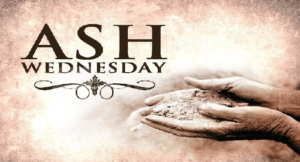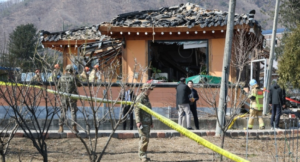
[contact-form][contact-field label=”Name” type=”name” required=”true” /][contact-field label=”Email” type=”email” required=”true” /][contact-field label=”Website” type=”url” /][contact-field label=”Message” type=”textarea” /][/contact-form]
On 1st September, the second phase of the Lagos State government’s ban on the operation of commercial motorcycles (popularly called Okada) took effect.
The phase saw the ban on Okada operations in parts of the state gaining more ground, with its extension to more areas.
It was extended to four more Local Government Areas (LGAs) and six Local Council Development Areas (LCDAs).
The state named the additional areas as Oshodi- Isolo LGA, Kosofe LGA, Shomolu LGA and Mushin LGA.
Agboyi -Ketu LCDA, Odi-Olowo LCDA, Bariga LCDA, Isolo LCDA, and Ikosi-Isheri LCDA were also given as the LCDAs affected by the ban.
Earlier in the year, the state government, after a critical review of its restriction on Okada activities in the first six LGAs from 1st February 2020, strengthened it further in the areas.
It expanded the restriction to a total ban across the highways and bridges within the six LGAs and their LCDAs, effective from 1st June 2022.
The state listed affected LGAs as Apapa, Surulere, Ikeja, Lagos Mainland, Lagos Island, and Eti Osa.
Apapa Iganmu LCDA, Coker- Aguda LCDA,, Itire -Ikate LCDA, Onigbongbo LCDA, Ojodu LCDA, Lagos Island West LCDA, Lagos Island East LCDA, Yaba LCDA, Ikoyi Obalende LCDA, Iru Victoria Island LCDA, Eti-Osa West LCDA, and Eti Osa East LCDA were also listed as the LCDAs affected by the ban.
Governor Babajide Sanwo-Olu said the ban was to implement the state traffic law and check the threats posed by operations of commercial motorcycles in the state.
For some riders who tried to defy the ban, the security officials have cut many to size.
The Lagos State Environmental and Special Offences (Enforcement) Unit said it impounded 150 motorcycles for violating traffic rules in the last week of September alone.
The unit’s spokesperson, Gbadeyan Abdulraheem, said the motorcycles were impounded after a weeklong operation in parts of the state.
Mr Abdulraheem stated that there had been about 95 per cent compliance with the ban, but that the 150 motorcycles impounded were used to flout the order.
Others who were in the business have not been daring, but taken the ban in their stride, settling for other means of making ends meet.
Dauda Yusuf, who rode Okada in Surulere, said he usually generated between N5,000 to N6,000 daily.
Mr Yusuf said he was operating between Bode Thomas and Ojuelegba and used to smile home every day before the ban reached the area.
“With the ban on Okada operations in Surulere, I switched to pushing wheelbarrows and selling water.
“I now sell water in Surulere where I am residing, I also generate over N1,200 daily through wheelbarrow pushing,” Yusuf said.
Tunde Afolabi, who operated in Lagos Island between Marina and Adeniji area, however, said it had been difficult for him after the ban.
Mr Afolabi pleaded with the government to help and provide them with accessible alternatives to survive.
Emeka Chibuzor said he operates in Ikorodu where commercial motorcycles still run, being outside the areas so far covered by the ban.
He, however, said that they faced challenges of extortion from police officers who restricted their operations unlawfully.
Mr Chibuzor pleaded with the government to intervene and stop the unlawful restrictions by the police, which were hindering their operations.
Kehinde Omotehinse, Coordinator, Lagos Community Youth Development Initiative, Kosofe chapter, said while the ban was well-intentioned, it took away the livelihood of many families.
“Government should provide an alternative. These people are Nigerians, they deserve a living too”, he said.
But the Lagos State government, in placing the ban, had urged the displaced riders to take advantage of the numerous schemes it had in place to empower residents.
The Commissioner for Information and Strategy, Gbenga Omotoso, said the government was not leaving the riders stranded.
Mr Omotoso said the riders could approach the government as a cooperative body to get the First and Last Mile buses.
The Commissioner for Transport, Frederic Oladeinde, while announcing the second phase of the ban, said the government was responsive.
”As a responsive government, we are not leaving the affected passengers stranded without any viable means of transportation, that is why we have made available alternative and sustainable means of transportation.
”The alternative transportation includes the First and Last Mile Bus Transport Scheme, the BRT Scheme, the Lagos e-hailing taxi Scheme (LAGRIDE) and other acceptable modes of transportation, to go about their daily activities”.
The commissioner said the government’s existing interventions aimed at empowering the residents should equally be accessed as alternative means of livelihood for the affected riders.
”These interventions are coordinated by the Ministry of Women Affairs and Poverty Alleviation (WAPA) for vocational training; the Ministry of Wealth Creation and Employment for internship programmes; Office of Civic Engagement; Office of Sustainable Development Goals (SDGs).
”Also, the Lagos State Employment Trust Fund (LSETF) for Loan for Micro, Small and Medium Enterprises (MSMEs) and Lagos Economic Acceleration Programme (LEAP); the Ministry of Agriculture (Agric YES); the Ministry of Education for CodeLagos Scheme, and many others.”
The Special Adviser to the Lagos State Governor on Transportation, Sola Giwa, said the government had been engaging in skills acquisition for different kinds of artisans.
Mr Giwa said that after engaging them in the training, the government usually gives them incentives to start their businesses.
“Government has been doing a lot with regard to incentives and providing soft loans to artisans.
“Okada riders that are affected by the ban could enrol for training to incorporate them in the First and Last Mile bus scheme of the state where they can get trained and retrained.
“Government has provided lots of First and Last mile buses that can ply routes across Lagos.
“People that are meant to ride the motorcycles should patronise First and Last Mile buses designated to ply inner routes to make Lagos residents more comfortable,” Mr Giwa said.
The Lagos State Police Command, on its part, dismissed fears of a possible negative ripple effect of the ban on the crime rate, due to the level of unemployment.
The command’s spokesperson, Benjamin Hundeyin, said rather than swelling crime, the ban had reduced the incidence of traffic robbery in some parts of the state.
“Although we still have pockets of traffic robbery in some areas, the ban has reduced it drastically.
“It has helped us channel our energy to other areas, so it has been a welcome development,” he said.
On its possible effect on other crimes, he said there was nothing on the ground to indicate an increase.
Meanwhile, some commuters want the government to do more to fill up the gaps the ban has brought to transportation in some areas.
One of them, Ramota Adeyemi, a civil servant, said the ban had come with some difficulties for residents.
According to her, the impact of the alternatives promised has yet to be felt on many routes where Okada had been banned from plying.
“I suffer a lot coming and going to work every day. I live in Mushin and I used to take Okada to get to my house from Mushin’s last bus stop.
“Since the ban, I have been trekking. So have many,” she said.
Some others, however, appealed to the state government to extend the ban to more council areas.
A resident of Shomolu, Oseni Ajimomuiya, said the positive results of the ban in the local government area should inform extension to other parts of the state.
Mr Ajimomuiya, who is a media assistant to the Chairman of the local government, said the ban was for the good of the people.
“The ban on Okada in certain areas is a step in the right direction. It is pro-people as it is for the security and well-being of residents.
“Look at Shomolu for instance, the compliance here is 100 per cent and we are already seeing the results.
“I was at the Federal Orthopaedic Hospital here in Fadeyi the other day and the CMD told me that emergencies and Okada-related accidents have drastically reduced.
“Traffic has been flowing better here since the ban. All these show that the ban is for the people.
“The extension of the ban to other local government areas will be for the good of more people”, he had told NAN.
Mr Ajimomuiya, however, said the state government could support banned Okada riders with more alternatives to take care of themselves and their families.
“Some routes are suffering, we must admit. Some of these Okada riders want to switch to tricycles but they can’t afford it. The government should support them”, he said.
Haruna Akinwale, a civil servant and resident of Maryland, said that the ban had brought sanity to his area.
Mr Akinwale urged the state government to extend the ban to other local government areas in view of the success recorded.
Edomi Ovie, a Lagos-based journalist, said the ban on operations of commercial motorcycles had been justified as it had reduced crime in the areas where it had been imposed.
He said the use of Okada was not ideal as a means of transportation in the state, calling for its blanket ban in all local government areas.
Wasiu Adesina, Chairman, Ikorodu Local Government, commended the state government for the ban in some local government areas.
He said the restriction was yielding the desired results in the affected council areas.
He said the ban, so far, had not been extended to his local government.
He said the council was doing everything possible to properly monitor the operations of commercial motorcyclists so that they do not pose threats to the people of the area.
“People use motorcycles to perpetrate crime, so it is important that we check such things in our community.
“Riders will be penalised for disobeying rules because we do not want our local government area to be operating ground for those banned in other areas”, he said.
Mr Adeshina warned Okada riders not to flout the rules guiding their operations in the community, vowing that erring riders would be made to face the full wrath of the law.
Similarly, Monsuru Akinloye, Chairman, Eredo Local Council Development Area, commended the state government for the restriction in some areas.
“The ban is commendable but the reasons for the ban are not present here in Eredo in the Epe division.
“Eredo is a peaceful place.No real issues with Okada riders. Accidents are not common, we are good here”, he said.
He said the council would continue to do its best to ensure that issues did not come up with Okada operations in the area.







